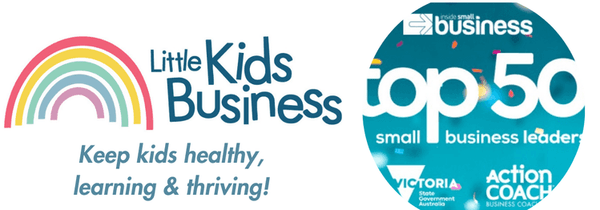As a first-time parent, safety should be of the utmost importance. It's essential to take on this responsibility from day one and create a safe environment for your baby to grow. To put it into perspective, according to the American Academy of Pediatrics, unintentional injuries or accidents are the leading cause of death in children aged 1-4. This statistic is concerning because it can be avoided if parents are more vigilant about making their home and environment as safe as possible.
Parents must be responsible for equipping their homes to be safe places. This can include installing safety gates at the top and bottom of stairs, covering sharp corners on furniture with padding or bumpers, using baby-proofing locks for cabinets, and ensuring any electrical sockets are covered.
However, the home is not the only place where danger can lurk. Awareness of potential hazards and risks is essential when taking a baby into the world. Here are a few things to consider when it comes to double-checking for safety:
Safety Driving
Safety driving is an essential responsibility for parents when they become a parent. Not only does it ensure your child's safety, but it also sets an excellent example for them to follow as they grow up. Certain precautions should be taken to ensure their safety when driving with an infant.
Car Seats
The most crucial step in keeping your baby safe while in the car is using a properly fitted and installed car seat. It is best to purchase a new car seat that meets current standards rather than attempting to use an older model or one passed down by friends and family. Ensure the straps are adjusted correctly and the seat is securely installed according to the manufacturer's instructions.
Proper Positioning
Ensure your newborn is placed in a rear-facing car seat in the vehicle's backseat until they reach at least two years old or meet the height/weight requirements for forward-facing seats. The American Academy of Pediatrics (AAP) recommends always keeping children under 13 years old in the backseat; this reduces their risk of injury by 70%.
Distractions While Driving
It's essential to remain focused while behind the wheel to react quickly and safely. This means avoiding distractions like cell phones, loud music, or talking passengers while driving with your baby on board. If you need help managing distractions, try setting up reminders or alarms inside your car or downloading apps that can block notifications while you're on the road.
Regular Maintenance
Finally, maintaining regular checkups for your vehicle will help keep it safe and reliable for transporting everyone around town. Check tire pressure regularly, get oil changes done at least every three months or 3,000 miles - whichever comes first - and replace worn tires or brakes when necessary. Having these maintenance schedules will keep you aware of potential problems before they cause any issues on the road with a young passenger onboard.
Adult Supervision
Supervising kids when the family goes outside is essential for their safety and well-being. Every parent should strive to be present and available when their children are out of the house. This means keeping tabs on their whereabouts, being aware of any potential risks they may come across, and providing them with assistance if needed.
It's also important to discuss with your kids any rules or expectations you have in place when you go outside together. Establishing consistent safety guidelines will ensure your family stays safe while enjoying the outdoors. For example, set ground rules on who to talk to, where they can go, how far away from home they can wander off, and so on. The more specific you can make these rules ahead of time, the better it will be for everyone involved!
It's also a good idea to educate your children about possible hazards they might encounter while outside, such as traffic, water sources (like pools or open water), animals, and other people who might not have good intentions. Allowing them to learn about these scenarios early on will help them feel comfortable discussing any dangerous situation that arises later in life.
Getting Different Insurance Policies
Insuring your family is an integral part of being a responsible parent. Insurance helps to cover medical bills, childcare costs, and other unexpected expenses that may arise. It can also provide peace of mind-knowing that you are prepared in case of an emergency or sudden financial hardship.
There are several types of insurance policies available to families. Health insurance protects you and your family from costly medical expenses like doctor visits, hospital stays, medications, etc. Additionally, depending on where you live, you may be able to purchase short or long-term disability insurance if one of the parents cannot work due to illness or injury.
Life insurance provides financial protection for your family should something happen to you. This type of policy pays out a predetermined sum upon death or diagnosis of specific illnesses like cancer or heart disease.
Finally, many parents also choose to get budget travel insurance to cover unexpected trip-related expenses. This type of policy helps to protect you if your flight is canceled or delayed, lost luggage, medical emergencies, and more. Moreover, parents can often obtain travel insurance at a discounted rate when they purchase more than one policy.
Final Thoughts
Being a first-time parent can be overwhelming, but being prepared and safe is possible. Taking the time to address potential risks before they happen will help you feel confident in providing your baby with a secure environment where it can grow and thrive. Double-checking for safety is critical; nothing is too much trouble when protecting the little ones.


